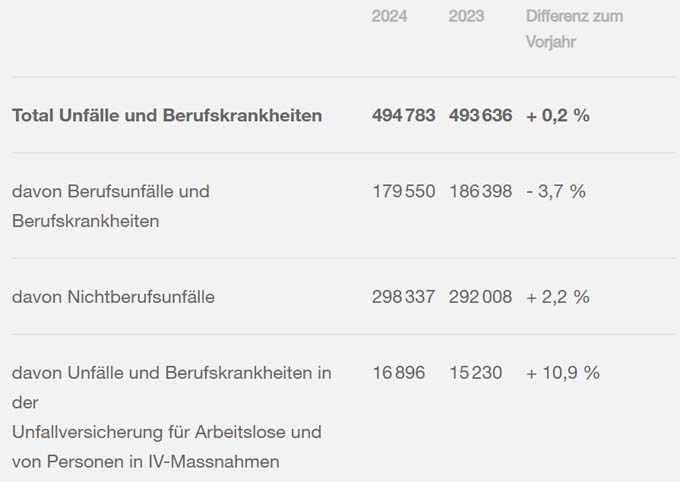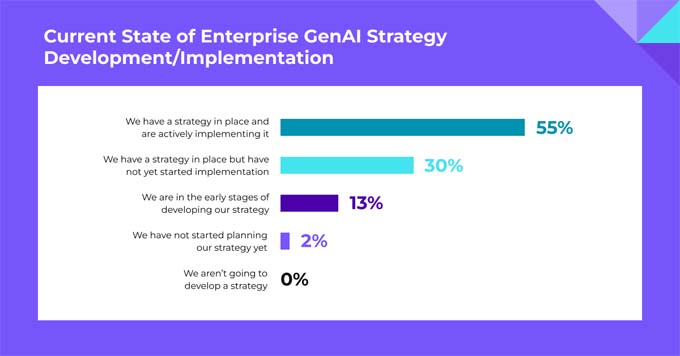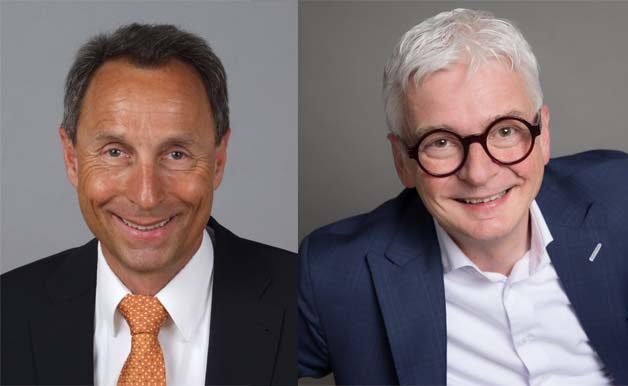Suva accident figures remain stable overall
As Switzerland's largest accident insurer, Suva insures around half of all working people against accidents and occupational illnesses. Around 495,000 cases were reported to Suva in 2024. The overall difference compared to the previous year is small. The proportion of accidents at work continued to fall. Many accidents can be avoided with active prevention.

Last year, Suva insured persons reported around 495,000 accidents and occupational illnesses. The difference to the previous year is small, with an overall increase of 0.2%. Occupational accidents and illnesses fell by 3.7 percent to just under 180,000 cases. On the other hand, leisure accidents rose by 2.2 percent to around 298,000 cases. The number of accidents involving persons registered as unemployed and persons on IV measures increased by 10.9%. This can largely be explained by the higher number of unemployed persons compared to the previous year.

Proportion of accidents at work continues to fall
"The overall accident figures have remained practically stable compared to the previous year," says Alois Fässler, statistician at Suva. "The decline in occupational accidents is particularly pleasing." While accidents at work used to account for the majority of reported accidents, Suva has been registering significantly more accidents during leisure time than at work since the early 1990s. Last year, the ratio was 62 percent leisure accidents to 38 percent work accidents.
"Safety at work has increased significantly in recent decades, whether through continuous prevention work or the reduction in workplaces with a high accident risk, for example due to increasingly automated processes," says Alois Fässler. "Accident figures are higher in the leisure sector because people now invest more time in their active leisure time and outdoor activities."
These were the sports with the most accidents
Over the whole of 2024, Suva registered the most sports accidents while playing football (29,000 / 26 % of all sports accidents), skiing (14,000 / 13 %) and biking/mountain biking (5000 / 4.6 %). There are gender-specific differences. For men, the order of the most frequent sports accidents corresponds to the overall result (football (31 %), skiing (11 %), biking (5 %)), while for women most accidents occurred while skiing (19 %), followed by mountain hiking (8 %) and playing football (7 %, mainly among women under 30). The most common injuries were to the knees, ankles and shoulders.
Accident prevention pays off
In addition to human suffering, accidents also cause high costs. This is why prevention - alongside insurance and rehabilitation - is an important part of Suva's services. Suva offers various prevention programs and advice in the area of occupational and leisure safety, which help to prevent accidents and occupational illnesses. At the same time, the measures promote the safety culture in companies, raise awareness of dangers and motivate people to take personal responsibility.
Suva will present detailed information on the 2024 financial year and the impact of the current accident figures on premium development at its annual media conference on June 13, 2025 in Lucerne.
Source: www.suva.ch
This article originally appeared on m-q.ch - https://www.m-q.ch/de/suva-unfallzahlen-bleiben-gesamthaft-stabil/




















